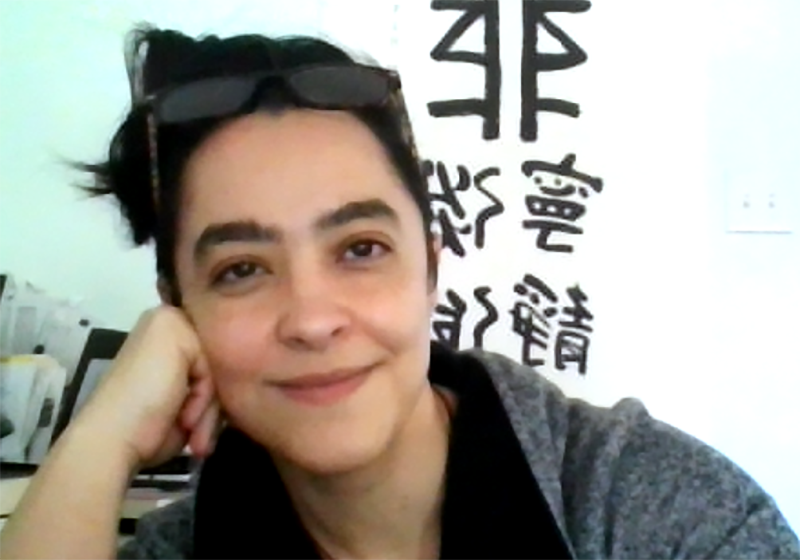#CaltechTogether: Maura Dykstra
“It’s no coincidence that the Critical Intersections series was created this year. First, it was a response to the resurgence of Black Lives Matter activism in the summer and the discussions about eugenics in Caltech’s past. My co-organizers and I were also inspired by the limitations and possibilities of communication during the pandemic. We conceived of a series that could tackle the serious and complicated issues surrounding the legacy of eugenics both at Caltech and beyond on the one hand and the problem of feeling connected in spite of physical distance on the other. It began with ‘Sitting Down with Uncomfortable Things in the Caltech Archives.’ Rather than starting off with an academic discussion, we wanted to think about how Caltech’s legacy connected us. We asked our presenters to ‘sit with’ items from the archive that represented different parts of Caltech’s past. We asked them to ponder: How do you accept and live with and contribute to a legacy that’s complicated? We hoped that, beyond each person’s immediate reaction to any given thing from the past, it was possible to think through to another side of what these artifacts meant. Then, in subsequent events, we had the pleasure of inviting academics and artists to talk through these legacies. Engaging visual artists both to reflect with us and share printed pieces of artwork inspired by the conversation with those who registered early added a physical reminder of community in a time when everything seems to be digital. On December 11, we have ‘Human, Scientist,’ our final fall event. I had this dream of bringing people from very different places in Caltech together for an informal conversation about an impossibly large topic. The question at the heart of this one is: Why does it matter that science happens in a human context? We’ll see how and whether we manage to push the boundaries again!”
Maura Dykstra, assistant professor of history, launched the Critical Intersections: Conversations on Race, History, and Science seminar series this fall along with Jennifer Jahner (professor of English), Hillary Mushkin (research professor of art and design), and Peter Collopy (university archivist). The series is dedicated to the history leading up to and beyond eugenics. “Human, Scientist” takes place online on December 11 at noon, with registration required.

